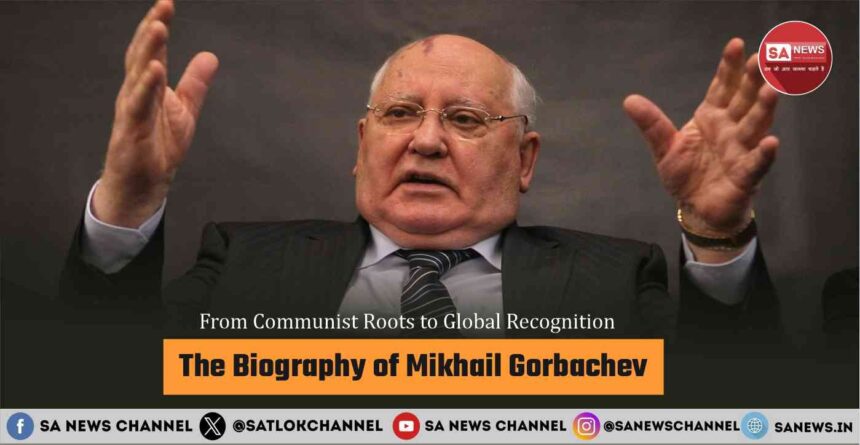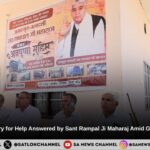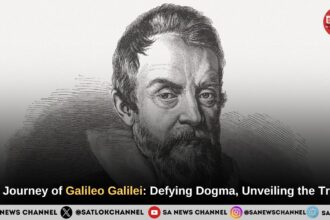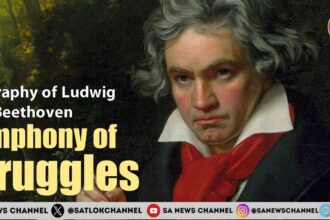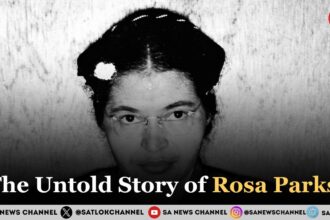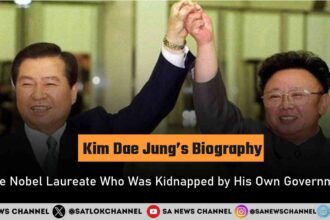Mikhail Gorbachev was one of the most impactful leaders of the 20th century. As the last Soviet ruler, he paved the way for revolutionary changes such as perestroika (restructuring) and glasnost (openness) that not only changed the Soviet system but also world history. Praised for bringing an end to the Cold War peacefully, Gorbachev was awarded the Nobel Peace Prize in 1990. His leadership remains a topic of debate—was he the reformer that provided people with freedom or the leader that presided over the fall of a superpower? Regardless, his legacy cannot be denied.
- Key Highlights on Mikhail Gorbachev
- Early Life and Childhood
- Personal Development and Education
- Early Years in Politics
- Rise to Power
- The Need for Change
- Restructuring the Economy with Perestroika
- Introducing Glasnost to Society
- International Relations and the Cold War
- The Fall of the Berlin Wall
- Nobel Peace Prize
- Collapse of the Soviet Union
- Life After Politics
- Legacy and Impact
- What Gorbachev Couldn’t Achieve Politically, Spirituality Provided Solution
Key Highlights on Mikhail Gorbachev
- Born in Privolnoye, Russia, in 1931, into a family of farmers.
- Studied law at Moscow State University, where he married his wife Raisa.
- Rose became the General Secretary of the Communist Party in 1985.
- Implemented perestroika and glasnost to update the Soviet Union.
- Played a major role in bringing an end to the Cold War peacefully.
- In 1990, was awarded the Nobel Peace Prize.
- Is considered to be a world reformer and peacekeeper.
Early Life and Childhood
Mikhail Sergeyevich Gorbachev was born on March 2, 1931, in the Privolnoye village in southern Russia. His family were peasants struggling to survive. As a young child, he worked with his father driving tractors and reaping crops. All the hardships of those early years instilled him with resilience, discipline, and immense responsibility.
Personal Development and Education
Though coming from a humble background, Gorbachev was an excellent student. His intellectual excellence qualified him for admission to Moscow State University, which was one of the most elite institutions in the Soviet Union. There he pursued a course in law and developed a fascination with politics and government. He also met his future wife, Raisa Titarenko, at university, who not only became his wife but his co-partner in public service throughout his career.
Early Years in Politics
Gorbachev was employed by the Communist Party in his native town of Stavropol after he graduated. He was notable due to his brilliance, charm, and ability for people communication with ordinary individuals. He was friendly and actually took an interest in the issues of citizens, unlike most politicians of the time. He progressed to promotions over the years and became a star in the Communist Party.
Rise to Power
In 1985, after the death of Konstantin Chernenko, Gorbachev was made General Secretary of the Communist Party and thus the head of the Soviet Union. He was younger than his predecessors, at 54 years old, and he introduced fresh ideas and vigor into the government. The Soviet Union’s new history started during his tenure.
The Need for Change
By the mid-1980s, the Soviet Union was deeply plagued by problems—economic stagnation, corruption, the absence of innovation, and unrest. There was minimal freedom for the population, stagnant agriculture, and stagnant factories. Gorbachev understood that the past system could no longer be tolerated if the USSR had to thrive as an international power.
Restructuring the Economy with Perestroika
Gorbachev’s most renowned reform, perestroika, was intended to restructure the economy. He limited private enterprise, promoted foreign investment, and empowered managers to control their industries more. Although these reforms brought some improvement, they laid bare entrenched inefficiencies in the Soviet system, bringing problems that he was unable to completely remedy.
Introducing Glasnost to Society
Gorbachev also introduced glasnost, meaning openness, with economic reform. Soviet citizens were granted the right to speak more openly, criticize the government, and read previously censored material. News of corruption was debated in newspapers for the first time, and individuals were able to debate political issues freely. Although this promoted freedom, it also created increasing criticism of the Communist Party.
Also Read: Biography of Audrey Hepburn: Beauty, Elegance and Legacy of Compassion
International Relations and the Cold War
Gorbachev’s greatest success was decreasing tensions around the globe. He cooperated with Western leaders, especially U.S. President Ronald Reagan. Their negotiations resulted in groundbreaking arms reduction treaties, which alleviated the nuclear shadow that had loomed over the world for decades. His diplomatic skill brought him recognition throughout the world and ended the Cold War peacefully.
The Fall of the Berlin Wall
Gorbachev’s policies contributed to the fall of the Berlin Wall in 1989, indirectly. Through giving more autonomy to Eastern European countries, he reduced Soviet power over them. This event, one of the most significant moments of his life and career, represented the demise of communist rule in Eastern Europe and is one of the most remembered moments in his life.
Nobel Peace Prize
For his work towards fostering peace, democracy, and global cooperation, Gorbachev was awarded the Nobel Peace Prize in 1990. As a leader who prioritized dialogue over confrontation, he was one of the most respected statesmen of his time.
Collapse of the Soviet Union
Though he reformed, Gorbachev was opposed by hardline communists and pro-democracy activists alike. Economic stresses, ethnic conflict, and political instability mounted, and the Soviet Union dissolved in 1991. Gorbachev stepped down as president, ending his presidency and the USSR itself.
Life After Politics
Despite resigning, Gorbachev continued to be engaged in international affairs. He wrote books, gave lectures, and set up organizations that promoted democracy and peace. He also campaigned for social justice and environmental causes, demonstrating his ongoing interest in global development.
Legacy and Impact
Mikhail Gorbachev is remembered as a reformer who altered history. Some remember him as the person who gave freedom to millions of individuals, whereas others recall him as the one who permitted a giant empire to disintegrate. Whatever people’s opinions, his impact on global politics cannot be argued. He showed that even the greatest systems can be changed with vision and courage.
What Gorbachev Couldn’t Achieve Politically, Spirituality Provided Solution
Mikhail Gorbachev’s leadership showed that even the strongest systems can collapse if built on injustice, suppression, and lack of truth. His attempts at reforms like perestroika and glasnost reflected a desire for openness and restructuring, but they could not fully solve the deeper issues of the Soviet Union.
Sant Rampal Ji Maharaj, in his discourses, explains that true reform in society and governance cannot come merely from political or economic changes—it must come from spiritual transformation rooted in God’s Constitution. Unlike temporary worldly solutions, the eternal path of Satbhakti (True Worship) shown by Sant Rampal Ji Maharaj provides peace, equality, and justice that no political system can guarantee. Just as nations search for stability, individuals too can find lasting solutions by adopting this divine knowledge.
FAQs on Biography of Mikhail Gorbachev
Q1. Who was Mikhail Gorbachev?
He was the final Soviet Union leader, best known for his reforms and attempts to put an end to the Cold War.
Q2. What were the principal reforms of Gorbachev?
His two most famous reforms are perestroika, or economic reform, and glasnost, or social openness.
Q3. Why did the Soviet Union disintegrate under Gorbachev?
The dual combination of economic issues, political instability, and increasing independence movements brought it to its downfall.
Q4. Did Gorbachev contribute to the end of the Cold War?
Yes, his diplomatic initiatives with Western leaders lowered nuclear tensions and brought an end to the Cold War peacefully.
Q5. What is Mikhail Gorbachev’s legacy today?
Even though opinions about his leadership continue to be split, he is viewed as a visionary reformer who championed openness, freedom, and peace.


